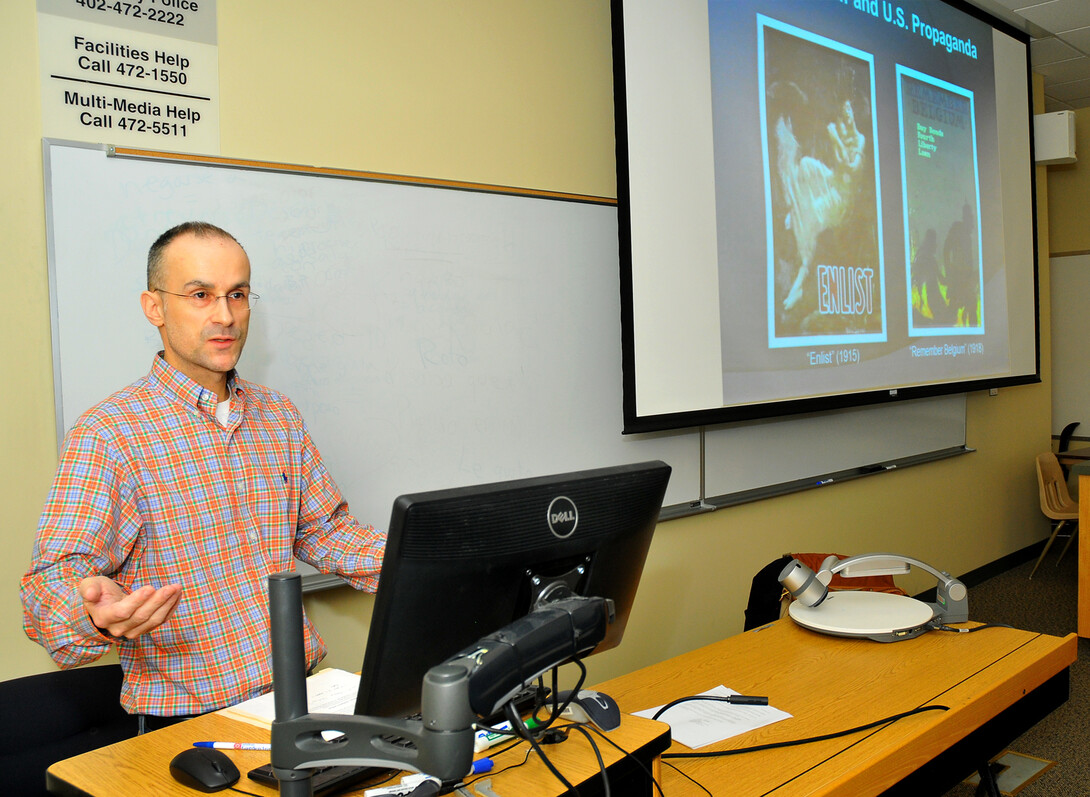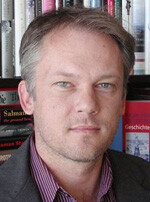
In popular culture, espionage is a glamorous occupation. Fictional spies like James Bond drive cool cars, have limitless technology at hand and are able to fight off anyone who comes between them and their missions. But in the real world, espionage is much different and more prevalent than ever before.
With that in mind, Gerald Steinacher, UNL assistant professor of history, has offered for the first time a class on the history of espionage. The three-credit-hour, 300-level class covers intelligence gathering from World War I to today.
Steinacher said espionage is largely ignored in historical accounts, thought it has played a substantial role in every conflict in the world. It also marks the most benign decisions made by government leaders every day.
“It’s not James Bond,” he said. “I want students to see what intelligence really is. Much of it is really mundane. I very much encourage students to think critically and to do their own research on current and past world affairs.”
He discovered an interest in espionage while doing research in his specialty: the Holocaust. Using archived intelligence files for his work, he realized that most people don’t have an understanding of espionage in a realistic sense.
As part of the class, students were encouraged to attend a lecture by Thomas Boghardt, a U.S. Army historian, who specializes in the history of espionage. His visit was organized by the Harris Center for Judaic Studies and the Great Plains National Security Education Consortium in collaboration with the Department of History at UNL.
Boghardt spent several years as a historian for the International Spy Museum in Washington, D.C., and is currently a senior historian at the U.S. Army Center for Military History. His Nov. 6 lecture explored America’s use of Nazi war criminals to gather intelligence at the beginning of the Cold War.
The following day, he gave a guest lecture in Steinacher’s Modern German history class on World War I espionage and the Zimmermann Telegram, which ultimately helped to bring the United States into the conflict in 1917.
Boghardt said a class on espionage such as Steinacher’s serves an important purpose in better understanding the world we live in, becasue intelligence is being continuously gathered all around us.
“There are many popular accounts of what espionage is and what it does; however most don’t understand the history of espionage and the huge role it plays,” Boghardt said. “It’s a missing dimension in history.”
With the recent NSA scandal, as well as past questions about enhanced interrogation techniques, espionage continues to be a contentious issue. It seems to be a popular one, too, judging by the high interest in the class.
Steinacher said he would continue to offer the course.
Meanwhile, Boghardt said he hopes students in the class will think critically about the role espionage plays in the world.
“As a citizen, you should be informed and you should form an opinion,” Boghardt said. “To me, there is no straight yes or no answer. And history has repeated itself. After 9/11, we worked with some very, very bad people to gather information, just as we did in postwar Germany, at the beginning of the Cold War.
“It’s important to understand espionage in context, and what intelligence is supposed to do.”








